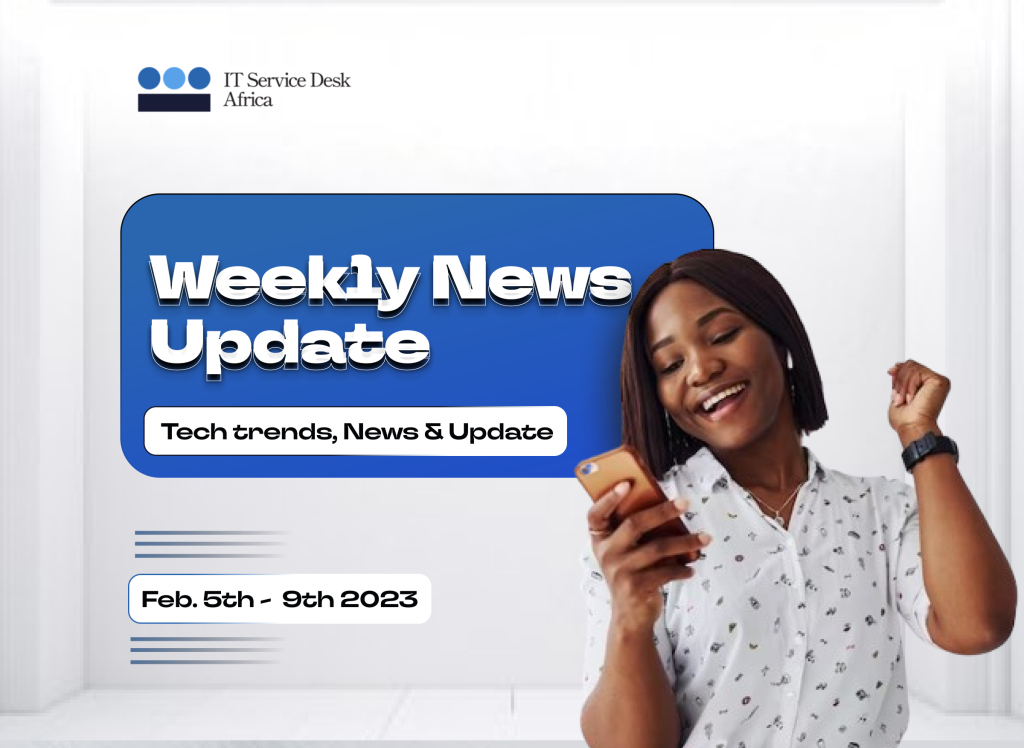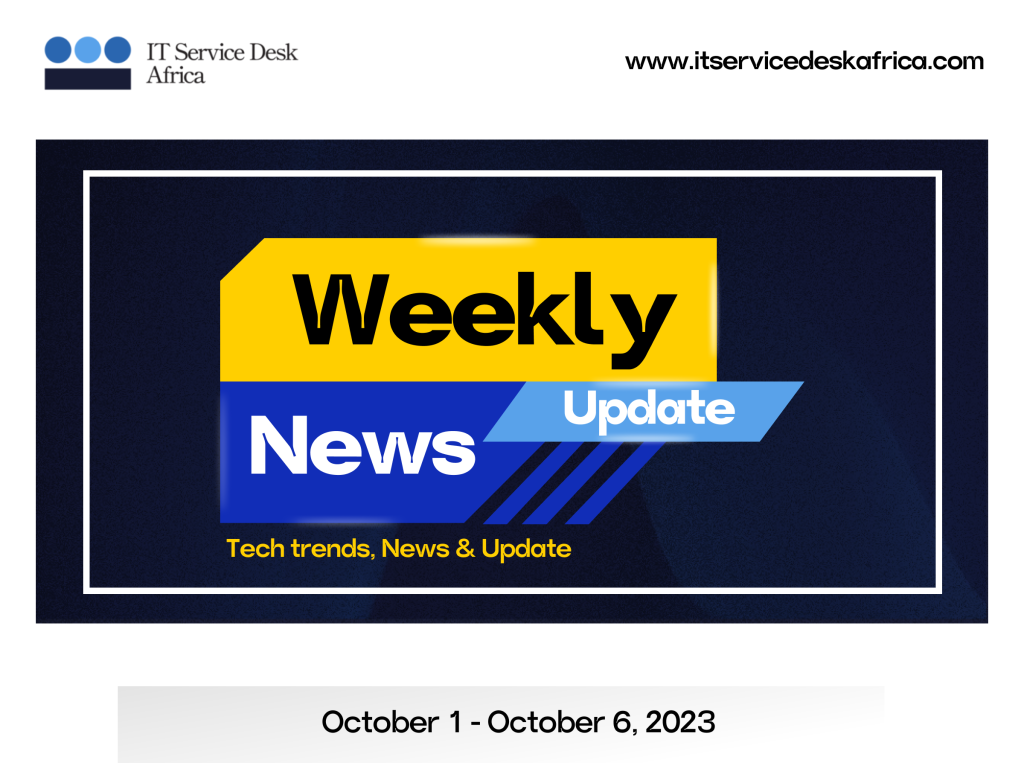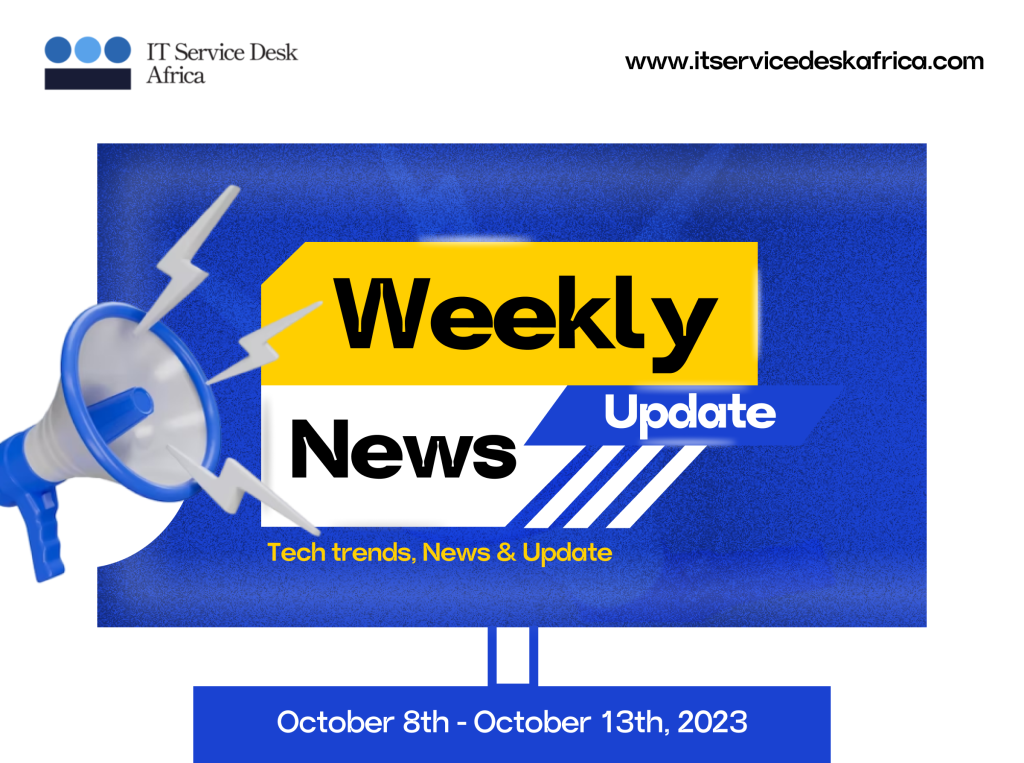1. NDPC Investigates 17 Data Breach Cases across Diverse Sectors
The Nigeria Data Protection Commission (NDPC) is the supervisory and regulatory authority for data protection in Nigeria, established under the Nigeria Data Protection Act 2023 (NDPA). The NDPA replaced the Nigerian Data Protection Regulations 2019 and the NDPB, which were the previous legal frameworks for data protection in Nigeria. The NDPA aims to protect the rights and privacy of data subjects, ensure compliance with data protection principles and obligations, and promote trust in the digital economy.
The NDPC has the power to investigate, monitor, and enforce data protection matters, as well as issue guidance, codes of conduct, and sanctions for data breaches. In February 2024, the NDPC announced that it was actively investigating 17 major cases of data breaches across various sectors, including finance, technology, education, consulting, government, logistics, and gaming/lottery. The NDPC stated that it was committed to holding data controllers and processors accountable for their data protection responsibilities, and urged them to implement adequate security measures and policies to prevent unauthorized access, disclosure, or loss of personal data.
2. Government Announces Plan to Digitize Public Services and Protect Data
According to a press conference held on January 29, 2024, the Minister of Communications, Innovation and Digital Economy, Dr. Bosun Tijani, announced that the Federal Government plans to digitize all public services to improve efficiency, transparency, and security. He said that President Bola Tinubu has given the Ministry the mandate to transform public services with technology.
The Minister also emphasized the importance of data protection in a digitalized economy and said that the Nigeria Data Protection Commission (NDPC) would be responsible for ensuring compliance with the Nigeria Data Protection Act 2023 (NDPA). The NDPA is the legal framework for data protection in Nigeria, which replaced the previous regulations in 2023. The NDPA aims to protect the rights and privacy of data subjects and promote trust in the digital economy.
The Minister also urged data controllers and processors to implement adequate security measures and policies to prevent unauthorized access, disclosure, or loss of personal data. He said that the NDPC was actively investigating 17 major cases of data breaches across various sectors, including finance, technology, education, consulting, government, logistics, and gaming/lottery.
3. Tech4Dev Launches DigitalForAll Challenge with N150 Million Reward
The DigitalForAll Challenge is a platform designed to reward self-development and encourage the acquisition and use of digital skills. The challenge is open to Nigerians who are 18 years or older, and who want to learn and apply digital skills in various categories such as web development, data science, graphic design, digital marketing, and more. The challenge will run for 12 weeks, starting from February 5, 2024, and will offer up to N150 million in cash and consolation prizes for the top performers in each category.
The DigitalForAll Challenge is an initiative of Tech4Dev, a non-profit social enterprise that creates access to decent work and entrepreneurship opportunities for Africans through digital skills development. Tech4Dev partners with Microsoft, the Federal Ministry of Communications, Innovation and Digital Economy, and other stakeholders to deliver the challenge and promote digital literacy and inclusion in Nigeria.
Click here to read through the tech news update for last week
4. Meet the 10 Startups Selected for 4IRTA in Agriculture Grants
The Fourth Industrial Revolution Technology Application (4IRTA) in Agriculture is a program initiated by the Ministry of Communications, Innovation, and Digital Economy to support market-ready innovations that leverage 4IR technologies (UAVs, IoT, AI, and Blockchain) to enhance productivity in Nigeria’s agricultural sector. The program aims to support President Bola Tinubu’s mandate to cultivate 500,000 hectares of land across Nigeria to boost food security.
The Ministry announced the 10 shortlisted startups for the program on January 26, 2024, after receiving 2,329 applications and conducting two rounds of reviews. The selected startups will receive up to N10 million in funding to deepen the application of 4IR technologies in their work. The Ministry of Agriculture is expected to provide support to the selected pilot farms and navigate a path to scale and sustainability.
The 10 selected startups are:
- Aerial Precision: It proposes a solution for smallholder maize farming utilizing drone technology throughout the maize farming cycle to collect real-time data and provide tailored recommendations. It will also use UAVs for fertilizing and applying crop protection products, aiming to address challenges such as pest outbreaks, labor scarcity, and health risks, with a focus on stakeholder engagement for widespread adoption and scalability in Nigeria’s agricultural sector.
- Ranch.ID LivestockPro: This is a farm management tool that utilizes loT technology and the National Animal Identification and Traceability system, providing real-time data on livestock activities, location, health, and vaccinations to enhance productivity and decision-making processes, with sophisticated devices ensuring continuous monitoring and prompt medical intervention for optimal livestock management.
- Agri-Wing Project: This is a drone-based solution that uses AI and computer vision to monitor and detect crop diseases, pests, and weeds, and provide timely and accurate diagnosis and treatment recommendations. It also uses UAVs for precision spraying of pesticides and herbicides, reducing costs and environmental impacts.
- Precision Farm Management: This is a web-based platform that uses IoT and AI to provide farmers with real-time data and insights on soil moisture, temperature, humidity, rainfall, and crop growth, and enable smart irrigation and fertilization based on crop needs and weather forecasts. It also uses blockchain technology to provide traceability and transparency of the agricultural value chain.
- Automated loT-Based Irrigation System: This is a solution that uses IoT sensors and actuators to monitor and control the water level and flow rate of irrigation systems, and optimize water usage and crop yield. It also uses AI and cloud computing to analyze the data and provide feedback and recommendations to the farmers.
- Geospatial Intelligence model for enhanced prediction of crop yield and crop stress assessment: This is a solution that uses satellite imagery and AI to estimate crop yield and detect crop stress such as drought, flood, and disease, and provide early warning and mitigation strategies. It also uses blockchain technology to provide secure and verifiable data for crop insurance and financing.
- AgriTrust Solutions by Ledger Labs: This is a solution that uses blockchain technology to create a decentralized and transparent platform for agricultural transactions, such as input supply, output marketing, and contract farming. It also uses smart contracts to automate and enforce the terms and conditions of the transactions and reduce fraud and disputes.
- Alfor Livestock diseases and health reporting: This is a solution that uses AI and mobile technology to provide livestock farmers with a diagnosis and treatment plan for common livestock diseases, based on the symptoms and images captured by the farmers. It also uses blockchain technology to create a secure and verifiable record of the livestock health history and vaccinations.
- loT Climate-Smart Device: This is a solution that uses IoT and AI to provide farmers with a portable device that measures and displays climatic parameters such as temperature, humidity, rainfall, and wind speed, and provides weather forecasts and alerts. It also uses solar power and GSM technology to ensure low-cost and reliable operation.
- Smart Pond (SP) and Future Fish Farms: This is a solution that uses IoT and AI to monitor and control the water quality and fish health of aquaculture ponds, and provide optimal feeding and harvesting schedules. It also uses blockchain technology to provide traceability and transparency of the fish production and supply chain.
5. Nigeria to Welcome 2Africa Undersea Cable by February
The 2Africa undersea cable is a 45,000 km subsea cable system that will connect 33 countries in Africa, Europe, and the Middle East, and provide faster and more reliable internet access for over 3 billion people. The cable is developed by Meta, the parent company of Facebook, and other partners such as China Mobile International, MTN GlobalConnect, Orange, STC, Telecom Egypt, Vodafone, and WIOCC.
The cable is expected to land in Nigeria by February 2024, according to the US Secretary of State, Anthony Blinken, who confirmed this during his visit to Lagos on January 26, 2024. He said that the cable project is one of the ways that American companies are supporting President Bola Tinubu’s goal of creating one million digital jobs in Nigeria.
The cable will land in two locations in Nigeria: Lagos and Kwa Ibo, a river town in the southeast. The cable will also have branching units to extend connectivity to other African countries such as Angola, Cameroon, Congo, Cote d’Ivoire, Gabon, Ghana, Madagascar, Mozambique, Senegal, and Sudan.
6. Meta Introduces New Messaging Restrictions for Teens
Meta, the parent company of Facebook and Instagram, announced on January 25, 2024, that it is rolling out new settings for teen users to help protect them from unwanted contact and potentially inappropriate content. Some of the new features are:
- Turning off the ability to receive direct messages (DMs) from anyone they don’t follow or aren’t connected to on Instagram and Facebook, by default. This means that teens can only be messaged or added to group chats by people they already follow or are connected to, unless they change their settings.
- Requiring parental approval for teens in supervised accounts to change certain Instagram settings, such as who can message them, comment on their posts, or mention them in stories. This gives parents more control over their teens’ online experiences and helps them set boundaries.
- Launching a new feature to help prevent teens from seeing unwanted and potentially inappropriate images in their messages from people they’re already connected to, and to discourage them from sending these types of images themselves. This feature will use artificial intelligence to detect and blur images that may contain nudity, violence, or other sensitive content, and will warn the sender and the receiver about the consequences of sharing or viewing such images.
7. Midnight Blizzard Strikes Again: HPE’s Email System Hacked
According to a regulatory filing by HPE on January 24, 2024, the company was notified of the breach on January 12, 2024, and believed that the hackers were from Midnight Blizzard, also known as Cozy Bear or Nobelium. This is the same Russian intelligence group that was behind the SolarWinds hack in 2020 and the Microsoft hack earlier this month.
HPE said that the hackers accessed and exfiltrated data from a small percentage of its email accounts, belonging to individuals in its cybersecurity, go-to-market, business segments, and other functions. The company said that the intrusion was likely related to an earlier activity by the same threat actor in June 2023, involving unauthorized access to some of its SharePoint files. SharePoint is part of Microsoft’s 365 suite, which includes email, word-processing, and spreadsheet apps.
HPE said that it immediately investigated the incident with the assistance of external cybersecurity experts and took containment and remediation measures. The company also said that it was working with law enforcement and would provide regulatory notifications if required. HPE said that the hack has not had a material impact on its operations or financial health and that it has not determined the incident is reasonably likely to materially impact its business.
8. Cybercrime to Cost $12 Trillion by 2025, CCRC Warns
According to the CCRC, the cost of cybercrime will increase by 15 percent per year over the next five years, reaching $12 trillion annually by 2025. This represents the greatest transfer of economic wealth in history and poses a serious threat to the security and prosperity of the digital economy.
The CCRC defines cybercrime as any illegal activity that involves a computer, network, or device and includes damage and destruction of data, stolen money, lost productivity, theft of intellectual property, theft of personal and financial data, embezzlement, fraud, post-attack disruption, forensic investigation, restoration and deletion of hacked data and systems, and reputational harm.
The CCRC report also highlights the hidden costs of cybercrime, such as opportunity costs, downtime, and damaged staff morale, which are often overlooked by organizations. The report estimates that the average cost of recovery from a cyberattack is $5 million, and that cyberattacks can have long-term impacts on customer trust, brand reputation, and market share.
You might also want to see this: Elevating IT Management: Unleashing the Power of Managed Services for Enhanced Security and Financial Efficiency




